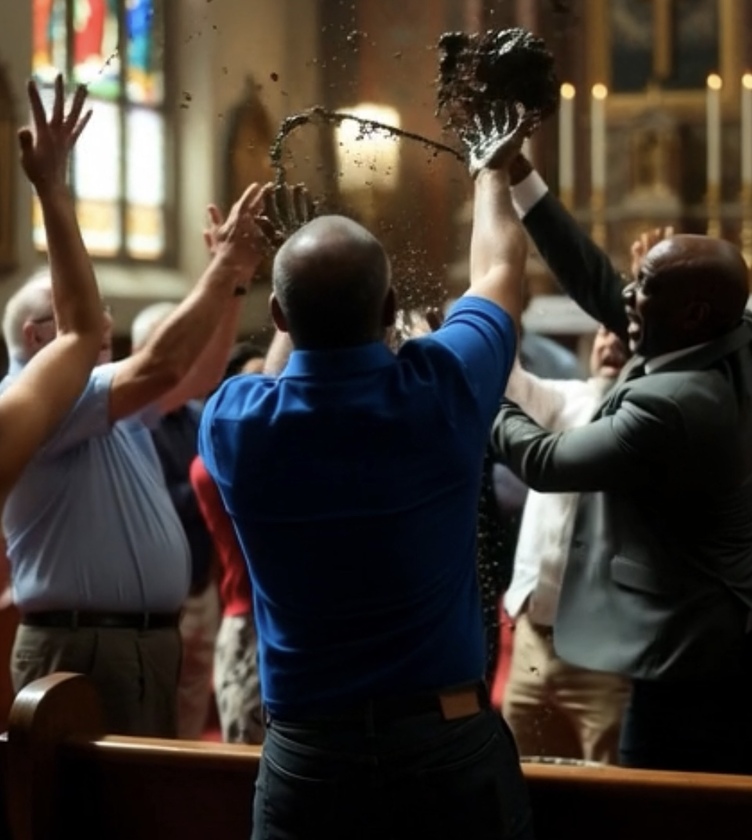Matthew 5 - The Badatitudes Part Three "The Spirit of the law"
(V.21) “You have heard that it was said to our ancestors, Do not murder, and whoever murders will be subject to judgment..."
(V.27) “You have heard that it was said, do not commit adultery..."
(V.31) “It was also said, whoever divorces his wife must give her a written notice of divorce..."
(V.33) “Again, you have heard that it was said to our ancestors, You must not break your oath, but you must keep your oaths to the Lord..."
(V.38) “You have heard that it was said, An eye for an eye and a tooth for a tooth..."
(V.43) “You have heard that it was said, love your neighbor and hate your enemy..."
And Jesus said, "But I tell you..."
Some believe Jesus is simply correcting the Pharisees distortions to the law. They believe Jesus is removing rabbinic-traditions, self-righteous zeal, and fundamentalist clutter from the Law of Moses so that the Law can be correctly understood. There is some truth in this, but this is really just the way in which Jesus gets around to making his main case. He's not merely challenging Rabbinic philosophers and the fundamentalists, he's actually tightening up many of the arguments they've made. He's making what seems to be somewhat harsh even more difficult in many cases. He literally destroys many of their liberalized ideas that they've made of the law. Where they gave wiggle room around the law with oral traditions passed down by generations of judges and politicians, he firms up the true spirit of the law and takes the judgment to its very roots. For instance, they give room to divorce for a wide variety of opinions, he tightens it up and gives only one reason that is holy. They instruct the judges to use equity in sentencing, and Jesus condemns the whole lot for harboring ill will towards anyone. Their lawyers make oaths a life and death situation, Jesus tells them to avoid ever making an oath at all, because you're going to break it, and therefore everybody ends up dead. The Pharisees instruct the people that the love of righteousness and righteous people is superior to the love of an unholy neighbor, Jesus tells them to love their enemies. He's doubling down on the rules. Jesus blows their minds by his radical love for ALL people, even the gentiles, but he's also making things more difficult and possibly dangerous.
Jesus isn't contradicting the law and he's not leaving it unchanged. He's explaining how he and the gospel truth is fulfilling the law and the prophets, and fixing the spirit of the law from what the Rabbis and judges, politicians and Pharisees have made of it. Each of the six verses in the "Badatitudes" is set apart by Christ's unique introduction to each topic: "You have heard it said.....but I say unto you...". And Jesus goes on in greater clarity, later on in chapter seven, to talk about his commands in better detail and with great authority (Matthew 7:28-29). The Judges, Rabbis and Pharisees taught from tradition; Jesus teaches from authority. The lawgiver is tightening up what the church and government had loosed in their efforts to make room for the carnal people, and the authorities, to cope with the law.
The law is spiritual, and mankind is carnal. Jesus is explaining to these doctors of the law how the law of God is given as a spiritual law from God who is Spirit. God's intent in creating the law was to protect against the carnal desires and sinful will by exposing the wicked spirit that governs the carnal people. And so, Jesus is illustrating how God is more interested in the spiritual intentions of one's interpretation and application of the law.
Bad intentions - Why are badatitudes bad?
We may believe we're being Christian when we hold our tongues and harbor in our hearts some anger or hatred towards others, but Jesus tells us that if we bring that badatitude into our prayer time, we're actually committing murder in the sanctuary. We do our best to practice peace and civility. We zip it rather than work it out. And Jesus says we may think we're "killing them softly," but it truly constitutes downright murder.
What's being murdered?
Obviously, the relationship is at least temporarily dead between the people who are angry with each other, but what about their relationship with God. Do you think their prayers are being heard?
The Spirit is being quenched. The angry parties are both badly hurt by their sin sickness, neither is able to worship God; neither is able to pray with truth. How can they, or the church for that matter, survive this spiritual crisis?
"A broken spirit dries the bones"
Proverbs 17:22
The law is being broken in the sanctuary, and the flesh is suffering in many ways, but the spirit is what God is looking into. His law is trying to save his people from sin and its toll taken on their spirits. God takes it personal, but breaking the law isn't personally and physically damaging Gods existence, it's damaging the connection he desires to have with his creation family.
Jesus' interpretation of the law, and the liberalized traditions, is that we are able to control our response to our environment and circumstances. That God wants our hearts and minds to get right, everything else is window dressing. He wants us to look at the spiritual costs being taken. It boils down to, "just because you can doesn't mean you should".
Jesus teaches us that we are capable of controlling our responses to our enemies. We can simply refuse to be their enemies. We can resist the urge to hate them, to "get back" at them. We have that power, and God respects that spirit of reconciliation. He isn't holding you to the law by insisting you take punitive measures. You can choose self-control. The law of love supersedes all other choices.
Instead of retribution, agape love.
Instead of retaliation, interceding prayer on behalf of one's enemies.
"This is the supreme command. Through the medium of prayer we go to our enemy, stand by his side, and plead for him to God."
God's grace has many facets, and one aspect of it is its universality. God blesses both the righteous and the wicked by pouring down rain upon the whole earth. Jesus sums up the Beatitudes by telling those with Badatitudes that they should go and do likewise if they truly want to reach the spirit of the law.
The characteristic of Christians that Jesus is interested in is one of having a keen appetite for righteousness in which God's law is written upon their hearts and made visible by their hunger and thirst for righteousness. Not dodging the law, not the letter of the law, not the outward appearance of the law, but the spirit of the law, a deep inward righteousness of the heart.
Amen. And God bless you all.
#Spirit #Law #Hypocrisy #Righteousness #Love



















